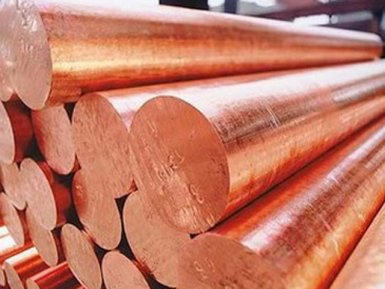Types of stainless steels

Are you interested in the types of stainless steels from the supplier company AvecGlob? Here you will find the necessary information on this topic.
General classification
Stainless steel is grouped according to the principle of their microstructure microstructure. The microstructure can consist of stable phases of austenite or ferrite, a «duplex» mixture of these two phases, a martensite or a cured structure containing the precipitated microcomponents.
Austenitic stainless steels
Austenitic stainless steel contains a minimum of 16% chromium and 6% nickel. Adding elements such as molybdenum, titanium or copper, the properties of steel can be changed. These modifications can make the steel suitable for use at high temperatures or improve corrosion resistance. Most steels become brittle at low temperatures, but nickel in austenitic stainless steel is suitable for low-temperature or cryogenic applications.
Austenitic stainless steels are generally non-magnetic. They can not be heat treated. Austenitic stainless steel quickly hardens during cold working.
Applications for austenitic stainless steel include:
Kitchen sinks
Architectural applications such as roofing and cladding
Roofing and drain systems
Doors and windows
Benches and cooking areas
Equipment for food industry
Heat Exchangers
Ovens
Chemical reservoirs.
Ferritic steels
Ferritic stainless steel contains only chromium as the main alloying element. The amount of chromium present ranges from 10.5 to 18%. They are known for their moderate corrosion resistance and poor machinability. The properties can be improved by modifying the alloys. Ferritic stainless steel can not be heat treated and is always used in the annealed condition. Ferritic steels are magnetic, and are not susceptible to stress corrosion cracking.
Weldability is acceptable in thin sections, but decreases as the thickness of the section increases.
Ferritic stainless steel is commonly used in:
Car Exhaust Systems
Fuel Lines
Cooking utensils
Architectural decoration
Household appliances.
Supplier — AvekGlob Company — offers to purchase a range of rolled products, made from different grades of stainless steels. Products can be bought at a price formed on the basis of European and world standards. Implementation is possible in bulk and retail, for regular customers, a flexible system of discounts operates.
Martensitic stainless steels
The distinguishing features of martensitic stainless steel are high carbon content and low chromium content. Hardened martensitic steels can not be successfully deformed in the cold state. They are magnetic, have moderate corrosion resistance and weak weldability.
Martensitic stainless steel is commonly used for the manufacture of:
Cutlery and Cutting Tools
Surgical Instruments
Fasteners
Valov
Spring.
Duplex Stainless Steel
Duplex stainless steel has a high content of chromium and nickel. As a result, duplex microstructures are formed that include both austenitic and ferritic phases. Having both austenite and ferrite in a microstructure, duplex stainless steel has properties of both classes.
Duplex grades are resistant to stress corrosion cracking, but do not correspond to the level of ferritic grades. The hardness of duplex grades is higher than in ferritic grades, but worse than in austenitic grades. Corrosion resistance of duplex steels, especially in chloride media, is very high. Duplex marks are easily welded. They also have high tensile strength.
Duplex stainless steel is commonly found in applications such as:
Heat Exchangers
Marine applications
Desalination plants
Food pickling plants
Oil and gas plants in the open sea
Chemical and petrochemical engineering.
Supplier — AvekGlob company — offers different types of rolled stainless steel of domestic and foreign production. The products are offered at affordable prices from the manufacturer. The supplier guarantees the timely delivery of products to any address specified by the consumer.


